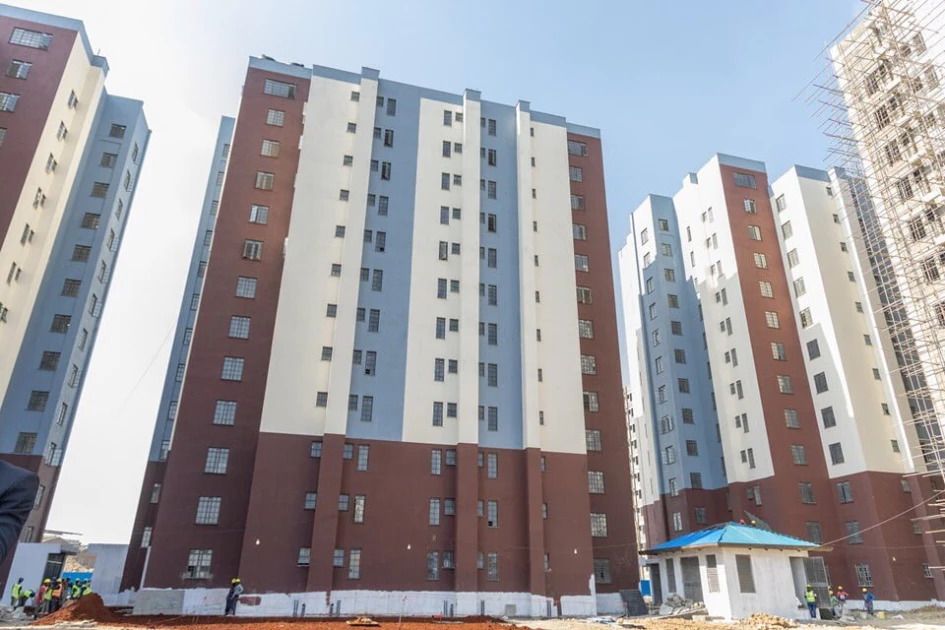Hinga insists COTU supported housing policy in ongoing back-and-forth

Housing Principal Secretary Charles Hinga has dismissed claims that the Central Organisation of Trade Unions (COTU) was not involved in drafting the Affordable Housing Regulations.
In a statement issued on Saturday, Hinga said the Ministry of Lands, Public Works, Housing and Urban Development followed due process in engaging all relevant stakeholders, including COTU, as required under the Affordable Housing Act, 2024.
“COTU-K voluntarily forwarded Earnest Nadome’s name to be its representative in the formulation of the enabling regulations and participated in the process alongside other stakeholders,” said Hinga, adding that the law guarantees workers a seat on the Affordable Housing Board.
Hinga's sentiments follow remarks by COTU distancing itself from the controversy surrounding the Affordable Housing regulations.
In a statement dated June 6, COTU denied the assertion that it was consulted or participated in drafting the regulations guiding the implementation of the Affordable Housing levy.
The union maintained that it had no hand in shaping the current policy and challenged Hinga to prove his remarks.
“As COTU, we have never been consulted either formally or informally, in the development, review, or approval of the current Affordable Housing Regulations,” said COTU Secretary-General Francis Atwoli.
"At no point did the Executive Board, which is a legally mandated organ responsible for such organisational decisions, sit to deliberate or resolve to support the said regulations."
COTU further distanced itself from Nadome’s representation on the Affordable Housing Board, saying his role does not equate to the union's official position.
“It is dangerous and frankly dishonest to equate the presence of one individual on a board to the institutional position of COTU,” the union said, adding that the PS should table evidence such as minutes or board resolutions if such consultation indeed occurred.
The union also questioned the scope of the law, warning that allowing housing levy funds to be used for broader infrastructure projects risks diluting the core goal of providing homes for Kenyan workers.
However, according to Hinga, the notion that the housing levy will fund non-housing components is misguided.
“Delivering affordable housing is more than just building homes, it includes roads, water, electricity, schools, markets and hospitals that create dignity and functionality in communities,” he said.
You may also like...
The Names We Carry: Why Africa’s Many-Name Tradition Shouldn’t Be Left Behind

"In many African communities, a child's birth is marked with a cascade of names that serve as fingerprints of identity, ...
WHY CULTURAL APPROPRIATION ISN’T ALWAYS OFFENSIVE

In a world of global fusion, is every act of cultural borrowing theft—or can it be respect? This thought-provoking essay...
Africa’s Health Revolution: How a New Generation is Redefining Global Wellness from the Ground Up

Move beyond the headlines of health challenges. Discover how African youth and innovators are using technology, traditio...
Kwame Nkrumah: The Visionary Who Dreamed of a United Africa
(13).jpeg)
Discover the powerful legacy of Kwame Nkrumah, Ghana’s first president and a pioneer of Pan-Africanism, whose vision for...
Meet the Theremin: The Weirdest Instrument You’ve Never Heard Of

From sci-fi movies to African studios? Meet the theremin—a touchless, ghostly instrument that’s making its way into Afri...
Who Told You Afro Hair Isn’t Formal?

Afro hair is still widely seen as unprofessional or “unfinished” in African society. But who decided that coils, kinks, ...
1986 Cameroonian Disaster : The Deadly Cloud that Killed Thousands Overnight

Like a thief in the night, a silent cloud rose from Lake Nyos in Cameroon, and stole nearly two thousand souls without a...
How a New Generation is Redefining Global Wellness from the Ground Up

Forget fast fashion. Discover how African designers are leading a global revolution, using traditional textiles & innov...




